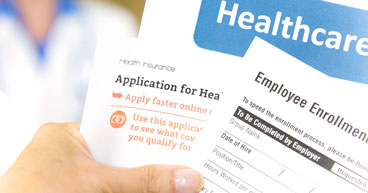
The health insurance open enrollment period—the window to sign up for a for a government-sponsored or employer-provided health insurance plan—is a good time to review the terminology and the advantages of several special health savings and reimbursement accounts.
Commonly referred to as an HSA, HRA or FSA, these plans offer potential financial benefits to cancer patients. In this article, we’ll discuss the definitions of each of these options and what they may offer to help you make educated choices that could bring some financial relief during a stressful time. Topics include:
- What is a health savings account?
- HSA contribution limits for 2024
- HSA vs FSA and HRA
- HSA-eligible items for cancer patients
If you’ve been diagnosed with cancer and are interested in a second opinion on your diagnosis and treatment plan, call us or chat online with a member of our team.
What is a health savings account?
A health savings account, or HSA, is like a personal savings account for health care expenses. An HSA allows you to set aside part of your income, before taxes, to be used for certain health care expenses. In some cases, your employer may also contribute to the account.
In order to qualify for an HSA, you must have a high-deductible health insurance plan or one a lower monthly premium, but if you need health care services, you may pay considerable out-of-pocket costs before you meet your deductible. The government considers a high-deductible plan one with a deductible of $1,600 or more for an individual and $3,200 for a family.
Things to think about when considering an HSA:
- An HSA is not available to those on Medicare or those who have a health insurance plan that pays its share of covered services.
- While you can set up your own HSA, be sure to check with your employer since an HSA may be part of its health benefits package.
- Note that your employer may have an annual enrollment period when you elect how much to deduct from your income each pay period and deposit in your HSA account.
HSA contribution limits for 2024
The Internal Revenue Service has set the maximum amount that can be contributed to an HSA for 2024 at $4,150 for an individual and $8,300 for a family. The entire amount contributed is not taxed as part of your income, and any funds withdrawn for qualified expenses are not taxed, making this a good option to help lower your tax liability as well as pay for health care costs.
HSA vs FSA and HRA
A health reimbursement account, also known as an HRA, is created and funded by an employer and allows employees to be reimbursed a certain, fixed amount each year for qualified medical expenses. Sometimes, employers allow any unused amount to be rolled over from year to year. Be sure to check with your employer to see whether you have access to such an account and what the allowed amounts and rules are for your specific workplace.
A flexible spending arrangement or account, also known as an FSA, is another option, if your employer offers it, in which you can save a certain amount of your income tax-free to be used for qualifying health care expenses. Unlike an HSA, you don’t have to be enrolled in a high-deductible health plan with this option, But the funds saved in an FSA usually must be used within the plan year. The Internal Revenue Service does allow a grace period of several months to use the money, while also allowing the option to carry over a portion of the saved amount from one year to the next.
Those with health care coverage through the Marketplace are not eligible for an FSA.
For 2024, the Internal Revenue Service has set the limit at $3,050 for the annual contribution to an FSA for health care expenses.
HSA-eligible items for cancer patients
Generally, an HSA will pay for items and services that promote proper bodily function and prevent or treat illness or disease. It’s crucial to consult with your plan administrator since coverage may vary.
For those recently diagnosed with cancer, as well as those in treatment or recovering from cancer, an HSA, HRA and FSA may prove particularly helpful in offsetting the cost of certain cancer treatments, services, prescriptions and other necessities to make your life more livable, such as wigs, special clothes or devices, drugs and reconstructive or cosmetic surgery procedures.
Check with your employer or the IRS publication that outlines the tax ramifications of each of these health care reimbursement options, and review the IRS’s HSA limits.
For those with cancer, some of the covered items may include:
- Lodging and travel expenses for out-of-town care
- Childcare
- Home health care not covered by insurance
- Supplements or over-the-counter medications
Note that insurance premium payments are not eligible for HSA, FSA or HRA reimbursement. To check whether a specific item or service is covered by an HSA or FSA plan, use the HSA Store, which offers a comprehensive, alphabetical list. But, again, be sure to check with your plan administrator before assuming an expense is eligible for reimbursement.
If you’ve been diagnosed with cancer and are interested in a second opinion on your diagnosis and treatment plan, call us or chat online with a member of our team.


